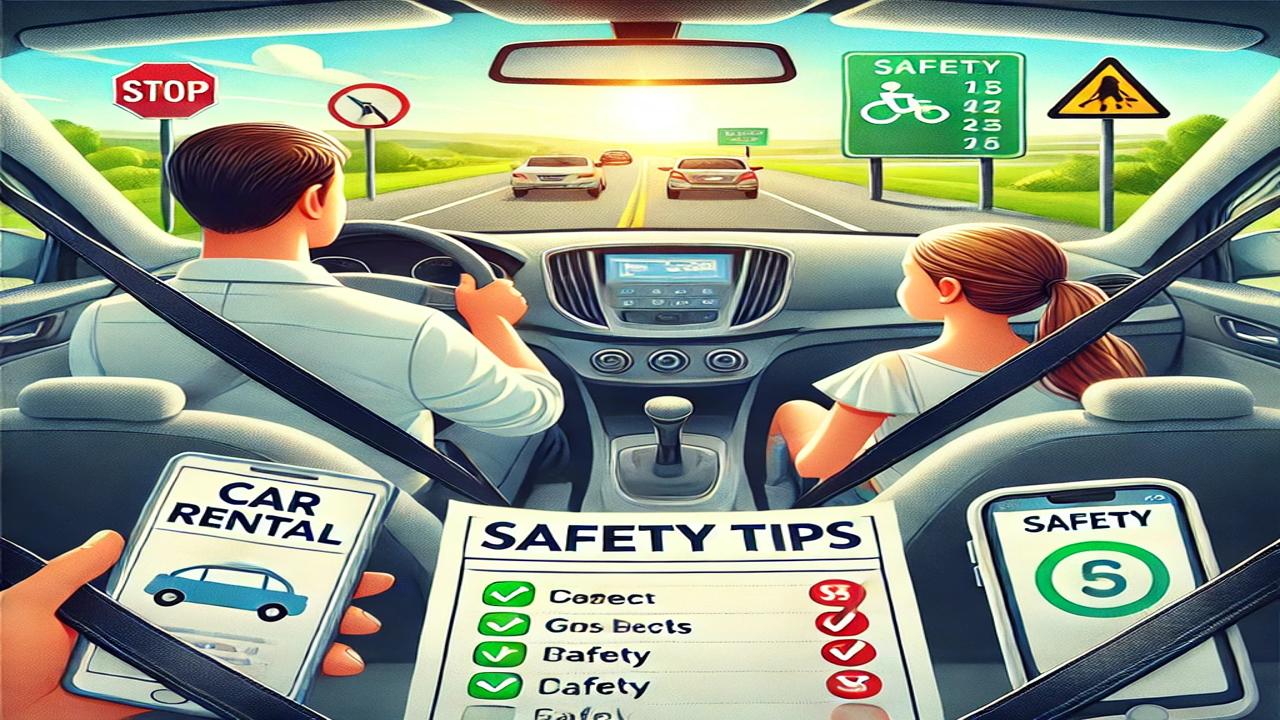Car Rental and Driving Safety: Staying Healthy and Safe During Your Journey

1. What to Consider Before Renting a Car
Car Selection:
To ensure your journey is safe and comfortable, selecting the right car is essential. If you're planning a long trip, choose a comfortable and safe car. You should also make sure that the car has been well-maintained. The condition of the brakes, tires, engine, and overall vehicle is critical for your safety.
Insurance and Backup Plans:
When renting a car, always check the available insurance options. Car insurance protects you from potential accidents or breakdowns and saves you from significant financial burdens. Additionally, make sure that the rental car is equipped with necessary items such as a spare tire, emergency kit, and first aid supplies. These items will help in case of an accident or breakdown, ensuring both your health and safety.
2. Health Preparations Before the Trip
Healthy Eating:
Eating a healthy meal before the trip will help you start your journey energized and alert. It is also important to avoid heavy meals during the trip, as they may make you feel sluggish. Drinking water is crucial as dehydration can cause distractions.
Adequate Sleep:
Getting enough sleep before a long journey is a critical factor in driving safety. Driving while tired can negatively affect your reflexes and decision-making abilities. Ensure you get a good night’s sleep before embarking on your journey.
Medical Needs:
If you have any health conditions, make sure to carry your necessary medications and take them regularly during the trip. For long journeys, it's helpful to be prepared for common health issues, such as headaches or stomach problems.
3. Safety Measures While Driving
Seat Belt Use:
Always wear your seat belt while driving, as it is a life-saving measure. Both the driver and passengers should wear their seat belts, as they significantly reduce the risk of serious injury in case of an accident. Before renting a car, ensure that the seat belts are functioning properly.
Avoid Distractions:
Using your phone, playing with the GPS, or engaging in other distractions can jeopardize driving safety. If you need to use your phone, make sure to use hands-free devices. It's also important to take regular breaks and stay focused throughout your journey.
Adhere to Speed Limits:
Following speed limits is not only important to avoid fines but also to ensure your safety on the road. Driving at high speeds reduces your braking distance and increases the risk of accidents. Moreover, exceeding the speed limit can result in legal issues.
Follow Traffic Rules:
Each road has its own set of traffic rules. If you are renting a car in a foreign city or country, familiarize yourself with the local traffic rules. Being aware of foreign traffic signs and regulations can help ensure your safety on the road.
4. Health and Safety Measures During the Journey
Vehicle Comfort:
Ensuring your comfort during the journey directly affects your driving safety. Adjust your seat to a comfortable position, ensure that you can easily reach the steering wheel, and correctly position the mirrors. During long trips, take regular breaks to stretch your legs. This will help prevent muscle aches and improve circulation.
Emergency Equipment:
It’s important to have basic emergency supplies in the car in case of an emergency. A first aid kit, flashlight, water, and some snacks are essential. Additionally, make sure that you have equipment for changing a tire, as it will prepare you for any unexpected breakdowns.
Check Road Conditions:
Before you hit the road, check the weather and road conditions along your route. Bad weather or road closures can affect driving safety. Always check the status of your route before starting the trip to avoid unexpected disruptions.
5. Post-Trip Health Checks
Take Time to Rest:
If you feel tired after a long drive, take time to rest. Long periods of driving can lead to muscle fatigue and mental exhaustion. Resting will help ensure that both your health and driving safety are maintained.
Take Regular Breaks:
On long trips, it is important to take a break every 2 hours. Getting out of the car and walking for a few minutes will help increase blood circulation and reduce fatigue.










